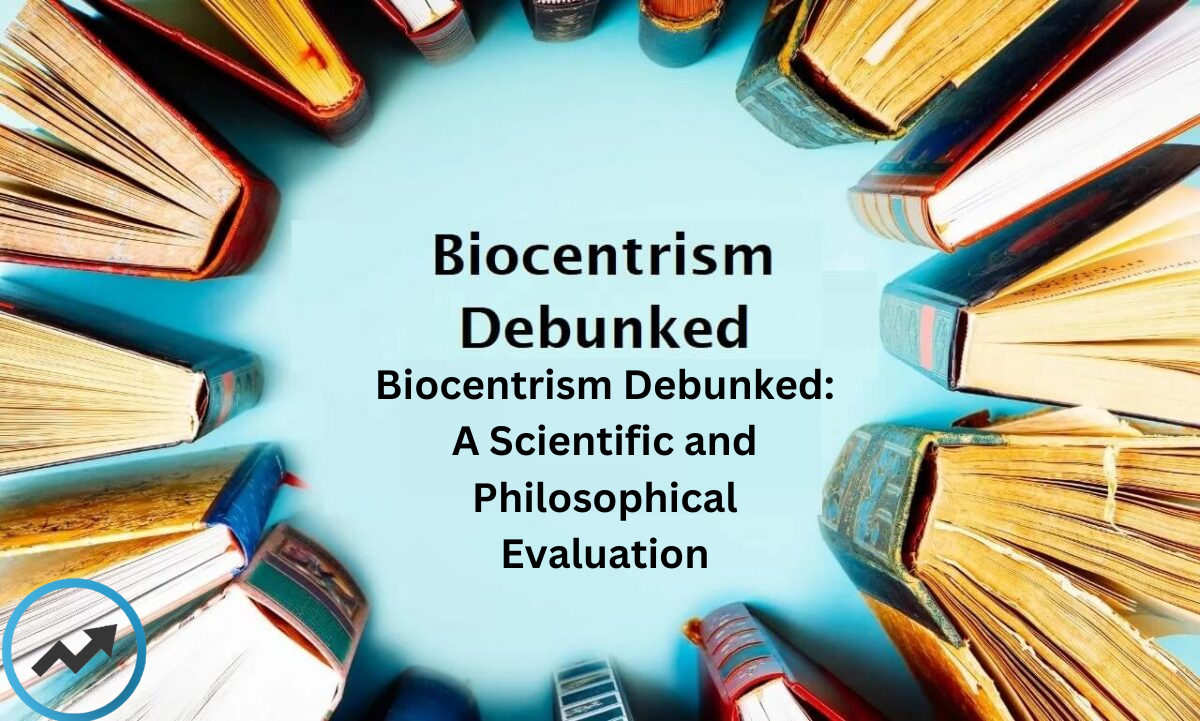Introduction
Picture this: you’re the central force of the universe. Every blooming flower, every distant star, every law of physics is because you — or someone, or something — are here to witness it. That’s biocentrism in a nutshell. But what happens when we pull back the curtain on this enticing idea? When we tug at its threads with the hands of rigorous science and philosophy? This is where we venture into a realm where the keyword “Biocentrism Debunked” starts to make rounds.
Understanding Biocentrism
Biocentrism turns the tables on human insignificance. It’s a poetic idea, one that Robert Lanza, a prominent supporter of biocentrism, has passionately described in his works. But can we take poetry as evidence? As we dissect biocentrism, we will find its reliance on misinterpreted quantum mechanics and a subjective take on time and space intriguing but ultimately lacking empirical support.
The Quantum Conundrum
Diving into the heart of “Biocentrism Debunked,” we encounter quantum mechanics. Biocentrism hangs its hat on the observer effect — the idea that particles exist in all states until observed. Yet, this is a misinterpretation. Quantum mechanics doesn’t need a conscious observer; it requires an interaction, any interaction, which doesn’t have to be with a conscious being at all. This misunderstanding is a key point in the argument of biocentrism debunked.
The Illusion of Time and Space
Biocentrism argues that time and space are constructs of the human mind. This brings us to a crucial aspect of “Biocentrism Debunked”: if time and space are merely perceptual, how do we account for the objective measurements and physics predictions that apply universally, regardless of human perception?
Consciousness and the Cosmos
In the “Biocentrism Debunked” narrative, consciousness is more than a byproduct of the brain; it’s an essential ingredient of the universe. Yet, this view conflates our subjective experience with objective reality. While consciousness is a fascinating mystery, to give it cosmic creative power is a leap beyond current scientific evidence.
The Anthropic Principle Revisited
A key concept often misrepresented in discussions of biocentrism is the anthropic principle. “Biocentrism Debunked” seeks to clarify this: while the conditions of our universe permit the emergence of life, it doesn’t imply that the universe exists because life is present.
Conclusion: Keeping Our Cosmic Perspective Grounded
In closing the chapter on “Biocentrism Debunked,” it’s essential to return to a grounded perspective. Our quest to understand the universe should be rooted in evidence and critical thinking. While biocentrism offers an anthropocentric comfort, it diverges from the path of empirical science and enters the realm of philosophical speculation.
FAQs on “Biocentrism Debunked”
Q: So, what’s the big idea behind biocentrism, anyway?
A: Biocentrism is like the plot twist in a sci-fi movie where it turns out that humans are the center of the universe, and everything revolves around our consciousness. It’s the belief that life and consciousness are not just part of the universe but that they fundamentally shape its reality. It’s a cool idea, but when you shine the harsh light of science on it, it looks shaky.
Q: I’ve heard that biocentrism has something to do with quantum physics. Is that true?
A: Biocentrism leans heavily on the weirdness of quantum physics. It suggests that the strange behavior of particles at the quantum level — like being in two places at once — means that our observations bring the universe into being. However, when you chat with actual quantum physicists, they’ll tell you that’s not quite how it works. Quantum weirdness doesn’t need a human audience to happen.
Q: But doesn’t the idea that the universe is fine-tuned for life support biocentrism?
A: It’s tempting to think that because the universe has conditions that support life, it must have been made with us in mind. But that’s like saying the lottery is rigged because someone won. The “fine-tuning” we see is just because we’re here to see it. It’s not evidence that the universe is fine-tuned for life, let alone that consciousness created the universe.
Q: If time and space are not human constructs, what are they?
A: Think of time and space like the grid on a map or the ticking of a clock. They’re not just in our heads; they’re ways to measure and understand the world. Sure, they can get wonky at the edges of physics, like near a black hole, but that doesn’t mean they’re make-believe. They’re fundamental aspects of the universe that would exist with or without us.
Q: Can consciousness influence reality at all, then?
A: Our consciousness can influence our reality — how we perceive and interact with the world. But as far as we know, it doesn’t conjure up stars, gravity, or the laws of physics. That’s not to say consciousness isn’t fascinating and important, but it probably doesn’t have the universe-building superpowers that biocentrism suggests.
Q: Why is it important to debunk biocentrism?
A: It’s not about raining on anyone’s parade or spoiling a beautiful idea. It’s about keeping our search for truth honest and grounded in evidence. Biocentrism is a captivating story, but science is about testing, questioning, and verifying. When we start accepting ideas based on their appeal rather than their proof, we risk wandering away from the real wonders of the universe — which are pretty awesome in their own right.
Q: Where can I read more about the debate on biocentrism?
A: There’s a sea of information out there. Look for books and articles from credible sources — scientists, philosophers, and researchers who’ve spent their careers studying consciousness, physics, and the universe. Skeptical science blogs and podcasts can give you a more grounded take on biocentrism buzz.













